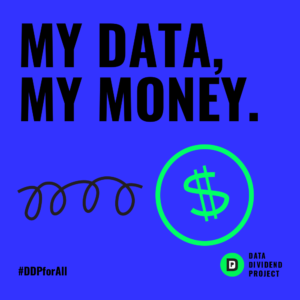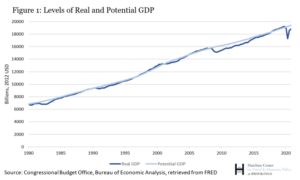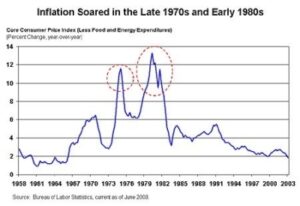This post is part of a series of posts that summarizes the book Angrynomics by Eric Lonergan and Mark Blyth.
If you found this post via search, it probably makes sense to start with the link to the full series, which is both here, and above.
Can data dividends be part of the solution to angrynomics?
But first: Featured Image Credit.
The next policy idea, which I think is fascinating, is the idea of the “data dividend”.
Companies are collecting enormous amounts of data on us.
Absolutely staggeringly enormous amounts of data.
And they are profiting incredibly well on their uses of “our” data.
And right now, we, the people on whom the data is being collected, analyzed, sold, and used to target ads, have very little say in what data is collected or how it’s used.
The basic idea here is to pass laws where WE have ownership rights of the data about us, and if the companies in question want to use it within their business practices, they: 1) Get our permission to do so, and 2) Pay us for the use of our data.
Now, I don’t expect this would ever be a truly significant amount of money for any one individual, but imagine what an additional $500 a month per person would mean to rural midwest communities that have been devastated by globalization.
It would partially make up for the economic devastation that globalization left in its wake.
Then imagine what it would do for larger communities in the rust belt, such as Detroit. The Detroit metro area has a total population of 4.4 million people. If for whatever reason only half the people in Detroit opted in, and the average monthly payment was $500, that would be a cash infusion into the metro area of $1.1 billion every month.
And bear in mind, this is NOT a Universal Basic Income.
It’s a market-driven approach based on capitalist ideas and “ownership rights” of data.
This idea is NOT something for nothing. It’s a royalty payment based on ownership rights.
It’s the extension of the concept of “rent” (money paid for the use of something someone else owns) based on the idea that data is something we own.
In a structure such as this, when the monopolistic technology giants use “our” data, our concern is different.
Yes, we are surrendering some privacy, but we’re doing that now, for free.
The appeal of this idea is that there is no way to label it “socialism” and as such it’s much more politically acceptable than a UBI would be.
Central bank cash to households: Direct support for consumption
This policy idea actually started to happen when economies around the world shut down in March of 2020 due to Covid.
Which to me illustrates how practical it is. This is such a good idea, we’ve already started doing it.
The basic idea is when an economy goes into recession and needs direct support for consumption, the central banks of the world directly give money to households, in the same way, that they directly gave money to big banks and big businesses in prior economic downturns.
Why does this make sense?
Because when you give money to people who spend it, rather than hoard it, the money gets spent and this spending gives the economy a boost.
The big failure of trickle-down economics is trickle-down doesn’t happen.
When rich people have more money, they hoard most of it because their material needs are already met.
They don’t need to consume at a rate 1,000 or 2,000 times the average person, and in fact, would be hard-pressed to do so.
But, spread central bank money around among people who need it to pay their rent, buy groceries, put gas in the car, etc, and it gets spent.
This is why direct support for consumption makes sense during recessions.



